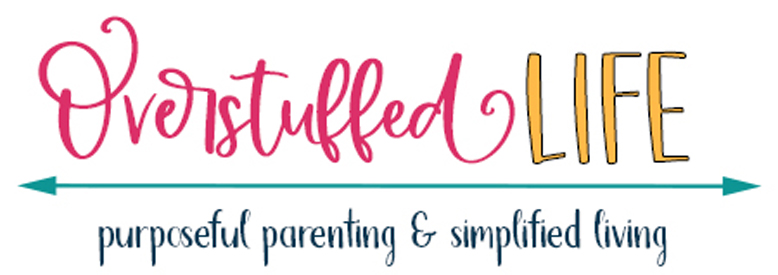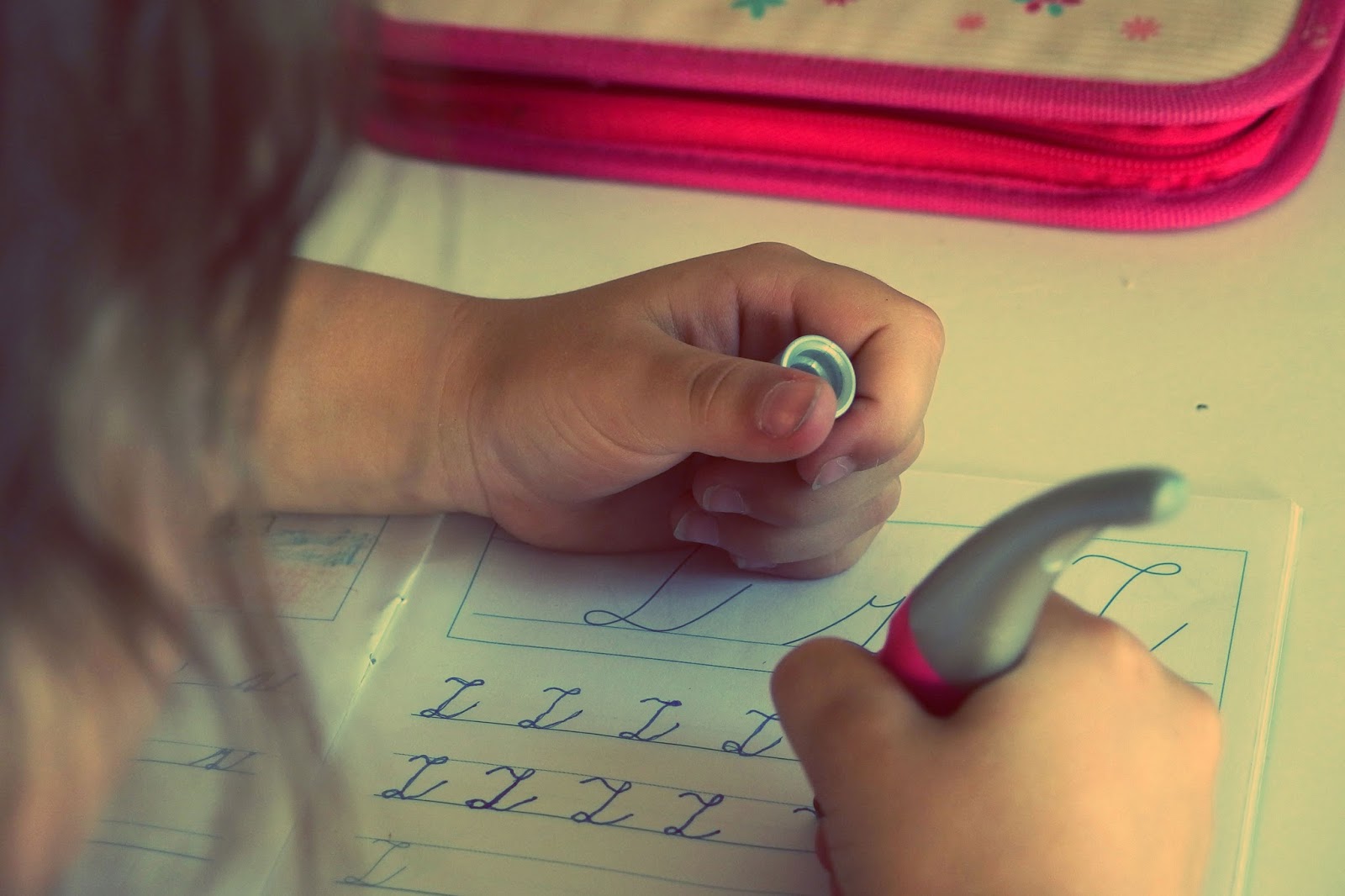To Check or Not to Check? The Pros and Cons of Checking Your Child’s Grades Online
Is it okay for parents to be check grades online? Find out the pros and cons and make the decision that’s best for you and your kids.

I get online a couple times a week to quickly check my girls’ grades.
In our school district we use PowerSchool. There are many other similar programs out there, and it is pretty likely that your children’s school is using one of them.
I didn’t realize until recently that the very act of checking your child’s grades on one of these programs is quite controversial!
After reading several different articles detailing why you shouldn’t check your child’s grades, I was convinced that the reasons they laid out did have some merit—especially in this generation of helicopter parenting.
On the other hand, I also felt that they were missing the good reasons to check grades, so I wanted to make sure I presented both sides.

The cons certainly haven’t stopped me. Like I said before, I check grades often. Still, it’s good for me to be aware of the cons because it helps me to stay balanced and not fall into the traps that sometimes happen with checking grades.
3 Cons of checking grades online
1. It contributes to helicopter and/or over-parenting
In this age of helicopter parenting, something as simple as being able to check your child’s grades whenever you want can contribute to the problem.
Helicopter parenting is best defined as a parent who discourages a child’s independence by hovering and being overly involved in the child’s activities. Helicopter parents are famous for swooping in and removing any discomfort, difficult situation, or obstacle to the child’s success.
Clearly, it can be tempting for parents with helicopter tendencies to want to do something about bad grades in an inappropriate manner. Things like calling the teacher to demand a better grade or doing the child’s homework for him would be classified as helicopter parenting.
Even if you don’t resort to extreme things like doing homework for your child, it can definitely contribute to micromanaging their school work.
2. It takes the responsibility away from the student
In order to raise children who are successful in life, we must also raise them to be independent and responsible for their own work.
A parent who goes online to check grades and assignments too often might unwittingly teach their child that they will always do it for them. The child then does not pay attention to what homework is due unless mom or dad tells them to.
3. It emphasizes performance over learning
This is the biggest complaint I read from students with parents who checked grades often.
These students felt the parents were more concerned with the actual grade than they were with what the child was learning and understanding. Grades should only be a way to gauge learning, and we should not over-emphasize getting straight As to our children.
6 Pros of checking grades online
1. It alerts parents to missing assignments
One of the main reasons I check my girls’ grades is so I can see whether or not they have missing assignments.
Sometimes they forget to pick up an assignment when they were out sick and it helps me to remind them to ask for it. I have one child who simply forgets to turn in her work on a regular basis. Seeing what is missing helps me to help her stay on track.
It is always the responsibility of my children to turn in their missing work, and if they don’t do it, they suffer the consequence of a lowered grade. My role is simply to tell them that I noticed they are missing the assignment.
Occasionally, a missing assignment is noted in PowerSchool that was turned in and somehow the teacher missed it.
Checking online helps to catch those mistakes—though I always make my child talk to the teacher about it themselves. It is not my responsibility and my kids know that if they want their grade fixed, they’ll have to be brave enough to approach the teacher. (My kids can be really shy, so this is particularly difficult for them—other kids may have no issues with it.)
2. It helps parents keep their children on track
All three of my children are very different in regards to the way they approach their school work. I have one who always has her work done and needs very few reminders to do her homework. I have another one who mostly gets it done herself but is easily distracted. She needs reminders to stay on track for long-term assignments or studying for upcoming tests. I have another who forgets to turn things in, dislikes school work, and puts up a pretty big fight when asked to do her homework.
Obviously, I need to approach each child differently, and the information I have from PowerSchool helps me to do that more effectively.
If I see a missing assignment from the child who is usually on top of everything, I only have to ask her if she realizes the assignment is missing. She generally already knows and has a plan for fixing it. But every once in a while she honestly forgot and my reminder helps her to get it done quickly.
If I see a missing assignment from the one who has all the missing assignments, I have to approach her differently. We need to really hold her hand sometimes to get her to stay on track in school, and while some would say that’s over-parenting, to me it is just parenting.
I do not do the work for her, I only give her multiple reminders. She is ultimately responsible for her work and sometimes the consequence for refusing to do it is a grade she is not happy about.
3. It helps parents see when their child is having trouble understanding a subject
Last year my oldest daughter was cruising along in geometry and doing really well. Then, all of a sudden, her high quiz and homework grades dropped quite low.
After talking to her about it, I learned that she simply did not understand the latest unit. To make things worse, her regular teacher was out on maternity leave and the substitute did not have the skills to help her understand the material.
Being able to see grades in real time has helped me as a parent to know when I need to help my kids more.
Sometimes this means hiring a tutor, and sometimes it means contacting the teacher. Other times it means my child talks to the teacher and asks for extra help. Still other times it simply means that I sit with them and help them to understand the homework.
My friend says that she appreciates seeing her kids’ grades online because she catches problems in understanding before her kids are ready to admit they are struggling.
She uses it as an opportunity to sit with them during homework time as moral support and to be there for them to ask questions. Sometimes that’s all they really need.

4. It gives parents the information they need to communicate with teachers
I would rather go into a parent-teacher conference ready to discuss a plan for them to be more successful than go in with no knowledge at all.
Because I check grades and communicate with my children often, I can give my perspective on how my child is doing in school. This leads to more productive conversations about why they are struggling, and how we can help.
A few of my friends who are teachers mentioned that they appreciate when the parent is on top of the grades online for this very reason. One of them also said that the kids who keep track at home tend to perform better in school simply because they are more aware.
5. It gives the opportunity for parents to praise their children
Remember my child who struggles getting things turned in? Well, that same child is really motivated by praise.
I am sure to praise her like crazy when I see she has done well on a test or turned in something that was previously missing. This does wonders for her performance on later tests and assignments.
I actually think that praise is a good motivator for all my kids. It makes them feel great to know that you see and appreciate the hard work they are doing.
6. It teaches the child personal responsibility
Although it can take away the child’s responsibility, it can also do the opposite.
When I see problems arise, my only job is to let my kid know I see them and possibly help them work out a solution. They are 100% in charge of fixing those issues.
They are accountable for doing their own work, getting help from their teachers, and turning in their assignments. The older they get, the more personal responsibility I require of them regarding their school work.
One friend of mine checks her son’s grades every Monday. If he has fallen below the grade benchmark they have set as a family or has any missing assignments, he has until Friday to fix it. If it is not fixed by Friday, he will lose certain privileges for the next week.
My friend likes that the ball is completely in his court. He has sufficient time to think about whether or not it’s worth it to him to earn the privileges by taking personal responsibility.
Another friend bases allowance off of grades, so she checks them weekly for that purpose. While I don’t like paying for grades, it definitely works for some families and can be a great way to teach responsibility.
My job as a parent is to help my children be successful
I want my kids to be independent and totally responsible for their own success in school, but it is ultimately my job to help them to do that.
As my kids have gotten older, my stance on this has actually changed quite a bit. I have learned that teenagers are incredibly stressed and overextended, and I want to help them to be successful however I can.
While that doesn’t mean doing their work for them, it does mean helping them to stay on top of their work. Plus, each child is different and will need different things from you as a parent when it comes to their success in school.
Ideally, kids should check their grades on their own. This way they will see the issues themselves and come up with a plan. Soon enough, they will be out of your home and off to college where they will have to do it.
Part of checking up on your kids’ work yourself is helping them to learn these essential skills. They will then learn to utilize those skills without your help.
My high school and middle school students have the PowerSchool app on their phones. They routinely check their grades and we continue to work on how to make plans to remediate things that aren’t going so well. This will serve them well when they are in college—as will having practice speaking to their teachers and asking for help.
Clearly, for me, the pros far outweigh the cons—I just have to make sure I am not micromanaging them!
- Small Habit: Check your children’s grades online.
- Big Difference: Help them be more successful in school and teach them personal responsibility,.
This post is part of a Small Habits That Will Make a Big Difference 30 day challenge. To see all of the posts in this series, click here. Or, join the challenge and receive a daily email with a new small habit that can affect your life in a big way.

Join the Small Habits/Big Difference Challenge!
To join, enter your email into the form at the end of this post. You will receive a daily email containing one new small habit.
Take the Challenge Now!

Want to change your life in great ways? Start small! Take the 30 day challenge and start making some big differences in your life today.



